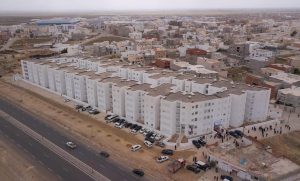Relations between Israel and France have experienced unprecedented tension after close aides to French President Emmanuel Macron revealed a severe crisis with Israeli Prime Minister Benjamin Netanyahu.
Former French MP Meyer Habib stated in a radio interview on Wednesday evening that he spoke with Netanyahu, who confirmed that Macron expressed a desire to visit Israel, but the Israeli Prime Minister refused.
The crisis escalated with the intervention of French Foreign Minister Jean-Yves Le Drian, who launched a public attack on his Israeli counterpart Gideon Sa’ar following the latter’s criticism of Macron.
Le Drian said in a tweet on the “X” platform: “Despite our differences over the Palestinian issue, your statements are distorted and unfair, dear Gideon.”
Le Drian explained that Macron succeeded in securing unprecedented commitments from the Palestinian Authority, including: “Stopping what he called the ‘pay to kill’ policy starting August 1, conducting an independent review soon, and reviewing Palestinian curricula to prevent incitement.”
He added that France will hold the Palestinian Authority accountable for these commitments in coordination with Britain, Canada, and Australia.
The French minister pointed out that Arab countries and Turkey pledged, within the “New York Declaration” adopted in July, to support: “Disarming Hamas, forming a stabilization force to manage the ‘day after’ in Gaza, and moving towards normalization and building a regional security system with Israel.”
This crisis came after Israeli Foreign Minister Gideon Sa’ar criticized the French president for opposing Washington’s decision to bar Palestinian Authority President Mahmoud Abbas and several officials from entering the United States to participate in the UN General Assembly meetings.
There are concerns in Israel that Abbas might take a unilateral step to declare an independent Palestinian state, which Israeli leaders consider a threat to their country’s security.
This diplomatic crisis between Tel Aviv and Paris is expected to affect security cooperation between the two countries, international efforts to resolve the Israeli-Palestinian conflict, and regional alliances in the Middle East.













Recommended for you
Exhibition City Completes About 80% of Preparations for the Damascus International Fair Launch
Talib Al-Rifai Chronicles Kuwaiti Art Heritage in "Doukhi.. Tasaseem Al-Saba"
Unified Admission Applications Start Tuesday with 640 Students to be Accepted in Medicine
Egypt Post: We Have Over 10 Million Customers in Savings Accounts and Offer Daily, Monthly, and Annual Returns
His Highness Sheikh Isa bin Salman bin Hamad Al Khalifa Receives the United States Ambassador to the Kingdom of Bahrain
Al-Jaghbeer: The Industrial Sector Leads Economic Growth